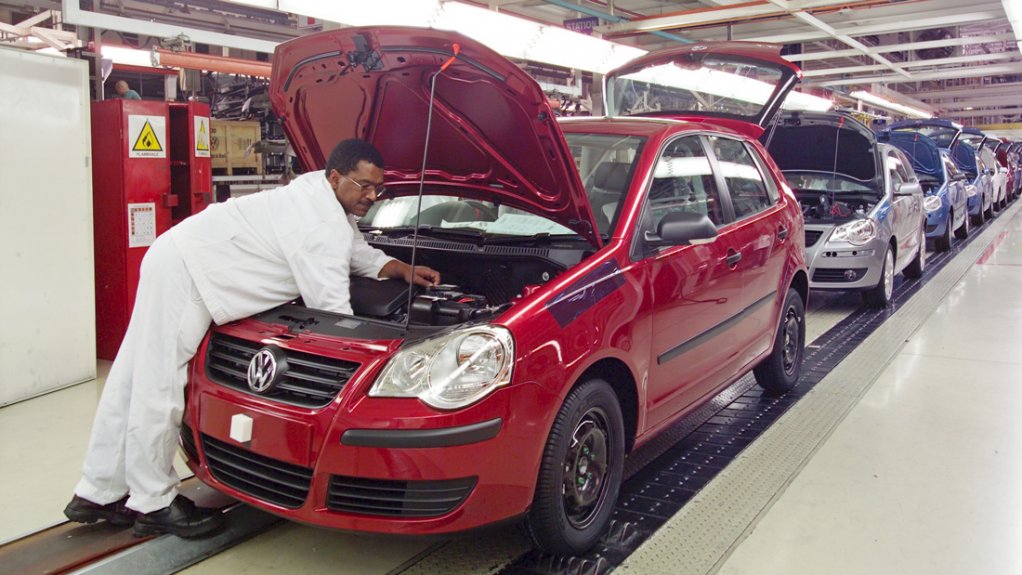The three-week strike at South Africa’s truck, bus, bakkie and car assembly plants was over, confirmed the National Union of Metalworkers (Numsa) chief negotiator Alex Mashilo on Monday.
A new three-year wage agreement secured workers a 10% across-the-board increase in the first year, as well as an extra sum of money, which would vary according to pay scale. The second and third year would see an 8.5% across-the-board increase, with additional money again added according to pay scale.
The increases additional to the across-the-board wage hikes originated in a wage adjustment Toyota South Africa Motors (TSAM) made for its team leaders outside the previous three-year wage agreement, noted Mashilo.
He added that five of the seven car and bakkie manufacturers had accepted the new multiyear wage agreement, with TSAM and BMW South Africa (SA) not doing so.
BMW SA confirmed that this was the case, owing to a persisting problem around shift allowances, but noted that its Rosslyn plant had returned to production on Monday.
TSAM spokesperson Leo Kok said personnel had been called back to the company’s operations on Monday, but added that “it would take a few days for the Durban plant to return to full production”.
“We are in talks with staff around the outstanding wage issues.”
Mashilo said there were “mechanisms in place” to deal with the outstanding issues at TSAM and BMW SA.
Ford Motor Company of Southern Africa (FMCSA) confirmed that its Silverton plant returned to production on Monday.
General Motors South Africa (GMSA) spokesperson Denise van Huyssteen also confirmed that its Port Elizabeth plant was again operational.
However, she added that GMSA noted “with concern that the new industry agreement has not yet been signed by Numsa. This must be done as quickly as possible in order to restore stability to the industry”.
Numsa confirmed that the agreement had not been signed.
Van Huyssteen added that GMSA, and the entire vehicle assembly industry, this week faced a fresh worry, namely the impact of a Numsa strike at motor retailers, fuel retailers and component manufacturers, which started on Monday, as it would cause “disruption at many of our suppliers”.
She said GMSA expected normal operations at its assembly plant throughout most of the week, following which the plant, which produced the Isuzu bakkie, Spark and Chevrolet Utility, would again face short-time, or zero production, owing to a shortage of components.
“We call on the union to play a positive role in concluding the auto industry agreement, and in resolving the component sector strike, as soon as possible.”
The National Association of Automotive Component and Allied Manufacturers executive director Robert Houdet on Monday confirmed strike action at the association’s member companies.
A statement released on August 30 by the National Association of Automobile Manufacturers of South Africa and TSAM president Dr Johan van Zyl, noted that the vehicle and automotive component manufacturing industry, including exports, accounted for around 30% of South Africa’s manufacturing output and about 4.5% of the country’s gross domestic product.
During the strike, TSAM lost around 700 vehicles a day at its Durban plant. GMSA lost 225 vehicles a day.
BMW SA, FMCSA, GMSA , Mercedes-Benz South Africa, Nissan South Africa, TSAM and Volkswagen Group South Africa all produced bakkies and cars in South Africa, both for the local and export markets.
UD Trucks Southern Africa and MAN Truck & Bus South Africa assembled trucks and buses in South Africa, and were included in the Numsa wage agreement.
The previous three-year wage agreement in the automotive assembly industry, signed in 2010, resulted in an eight-day strike. The three-year agreement provided for an across-the-board wage increase of 10% in 2010, and a 9% increase in both 2011 and 2012.
EMAIL THIS ARTICLE SAVE THIS ARTICLE
To subscribe email subscriptions@creamermedia.co.za or click here
To advertise email advertising@creamermedia.co.za or click here











